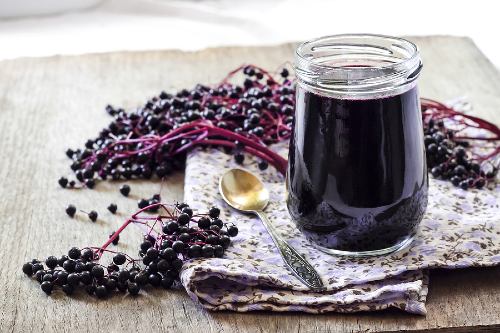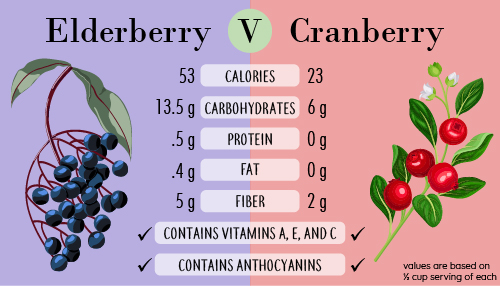Elderberries are a hot topic in the colder months of the year. But what makes these berries so special?
The elderberry is a dark purple berry that grows on the elder tree. That makes sense, right? Elderberries must be cooked before they are eaten. This is because fresh elderberries can make you pretty sick. [1]
However, once they are cooked and safe to be eaten, they are used in a variety of products. These include elderberry syrup, jam, herbal teas, and even supplements. [2]
Elderberry products are popular during cold and flu season because they are believed to have immune-supporting properties. [2] When a food product makes a health claim like this, it is important to know what the research says. Let us break down the facts for you!

Do elderberries strengthen the immune system?
Elderberries contain a variety of nutrients including vitamins A, E, and C. [3] These vitamins are also known as antioxidants which build the body’s defense against germs and help fight off illness.
However, the benefits you receive from antioxidants depend on the amount of them you eat in your food. This is true for elderberries, too. Most research is based on elderberry extract, which is a concentrated version of elderberries. [4] There are no current recommendations for the amount you would have to eat to get these benefits.
Additionally, elderberry products can be a little pricey. Good thing we know of a cheaper option! Cranberries have a similar nutrient content and have been shown to support both the immune system and the cardiovascular system. [5] Check out how these two berries compare below.

Information in the table came from the following sources: [2] [6] [7]
While we wait for more evidence on the elderberry, there are other foods we can eat to help keep our bodies healthy. Consuming fruits and vegetables are a great place to start! Check out our blog on Eating for Your Best Immune System to learn more.
Written by Darci Bell, RDN, LD | Edited by Nutrition Team
References:
[1] Permaculture Research Institute